Original title: World Weekly’s "New Strategy" for the United States and Ukraine?
With the coming of severe winter, the conflict between Russia and Ukraine, which has lasted for 22 months, is more and more like a forgotten war. This week, Ukrainian President Zelenski visited Washington again when Ukraine’s counter-offensive failed and US aid to Ukraine was "about to run out". From the outside world, Zelenski’s trip has a strong purpose of "alms". However, the BBC pointed out that Zelenski’s trip was almost "nothing" and the aid to Ukraine remained deadlocked. The New York Times further pointed out that senior US and Ukrainian military officials were holding talks to try to find a "new strategy".
eleven past ten p.m.
December 10th, Buenos Aires, Argentina. Travel-stained Ukrainian President Zelenski flew halfway around the world to attend the inauguration ceremony of the new Argentine President Milo. However, Zelenski, who was in Argentina, had already flown to the United States.
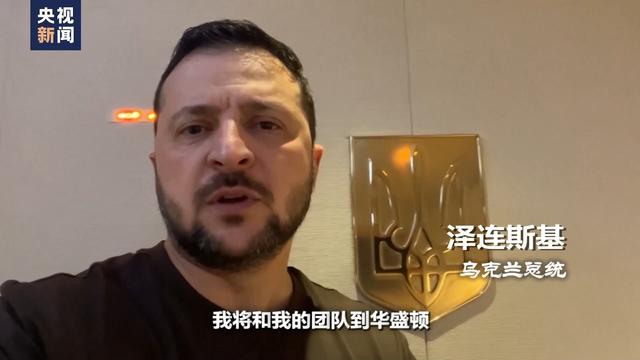
Ukrainian President Zelenski:Tomorrow and the day after tomorrow, I will go to Washington with my team. We have arranged many meetings and negotiations with President Biden and Congress, which is of great significance.
The next day, Zelenski started his third visit to the United States after the outbreak of the Russian-Ukrainian conflict.
But unlike the previous two times, this time Washington didn’t greet him with a red carpet.
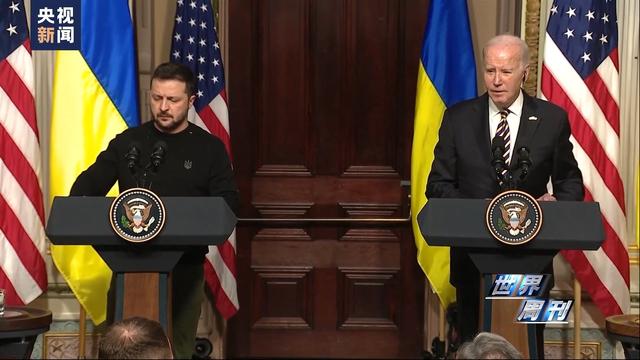
On the afternoon of December 12th, US President Biden met with visiting Zelenski in the Oval Office of the White House. Then the two held a joint press conference.
In the YouTube live broadcast of the White House, people actually found such an embarrassing scene.
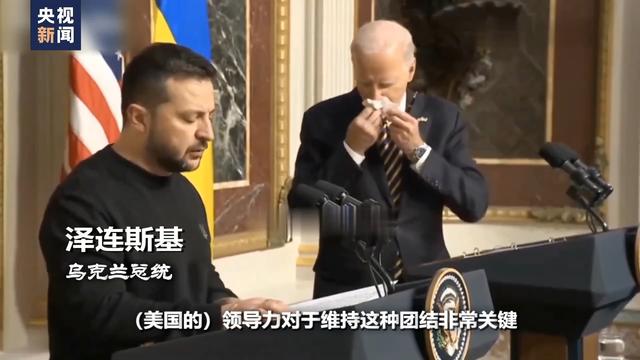
Ukrainian President Zelenski:American leadership is critical to maintaining this unity.
Soon, this video went viral on social media. Some netizens commented: "This is very embarrassing. Why does Biden blow his nose at Zelenski?"
In fact, when two people face reporters together, such embarrassment appears constantly.
Reporter:Many Republicans question Ukraine’s ability to win the war. US Senator Vance even said recently that Ukraine needs to cede some territory to stop fighting. Honestly, have you considered giving up territory to stop fighting?
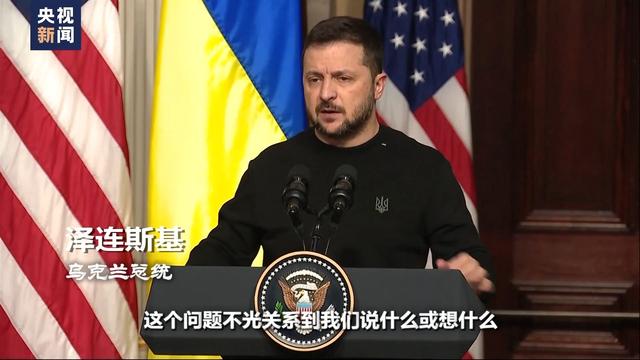
Ukrainian President Zelenski:This question is not only related to what we say or think, but also whether we are fully prepared. How could Ukraine give up its territory? To be honest, it’s crazy.
In December last year, Zelenski started his first visit to the United States since the conflict between Russia and Ukraine.
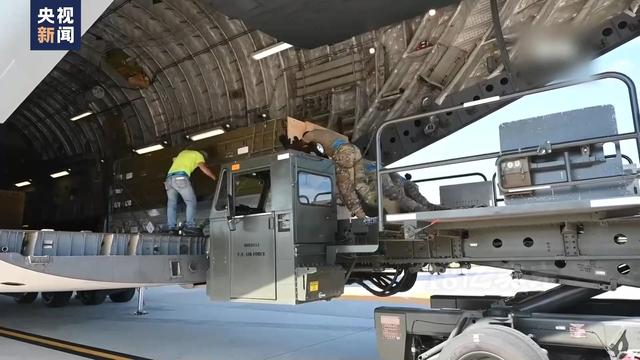
During that visit, he received nearly $1.8 billion in military assistance from the United States and the Patriot air defense missile system.
In 2023, the United States and Europe increased their aid to the Ukrainian army, and even gave the green light to provide main battle tanks and long-range weapons.
This time, however, subtle changes have taken place in the political atmosphere of US domestic aid to Ukraine.
The reason is very simple. Aid is not without cost. However, since the summer of this year, the Ukrainian military has made little progress in its counter-offensive with western-trained personnel and weapons, and the Russian-Ukrainian war is in trouble.
The British "Financial Times" pointed out that Ukraine felt the "aid fatigue syndrome" in the West.
On December 12th, it was not only Zelenski who was pressed by reporters, but also US President Biden.
Reporter:In recent months, Ukraine’s counterattack has stagnated, and Congress has blocked the passage of the aid budget for Ukraine. Putin seems ready to wait until the situation is over. So, what strategies will the United States and Ukraine adopt next year to reverse this situation? If it fails, as a friend, when will you say to Ukraine, "Maybe it’s time to start seeking peace talks"?
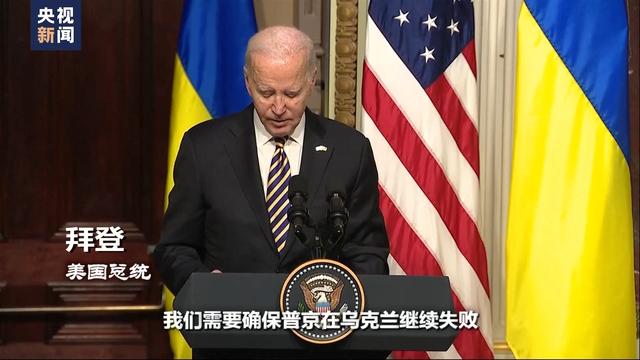
US President Biden:We need to ensure that Putin continues to fail in Ukraine and Ukraine continues to succeed. The best way is to pass a supplementary budget.
Biden’s supplementary budget is a package of funding proposals put forward by the White House, including more than 60 billion US dollars in aid to Ukraine.
However, just last week, the budget was rejected by the Senate because of the opposition of ultra-conservative Republican lawmakers and some centrists.
Seeing that the US Congress is about to adjourn before the traditional holiday, Biden is anxious and helpless.
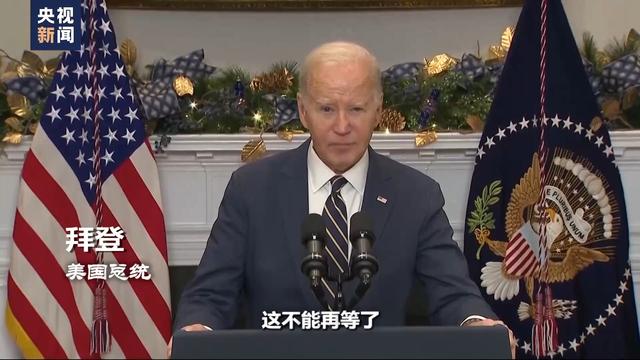
US President Biden:This can’t wait any longer. Congress needs to pass supplementary appropriations for Ukraine before the holiday recess. It’s as simple as that.
The promised 60 billion aid to Ukraine was blocked, and the amount of aid to Ukraine announced by Biden in front of Zelenski was only a fraction: $200 million. Even his words changed subtly: "We will support them as long as we can".
Prior to this, Biden said many times: "We will support Ukraine as long as it takes."
This may be the biggest knot of Zelenski’s visit to the United States.
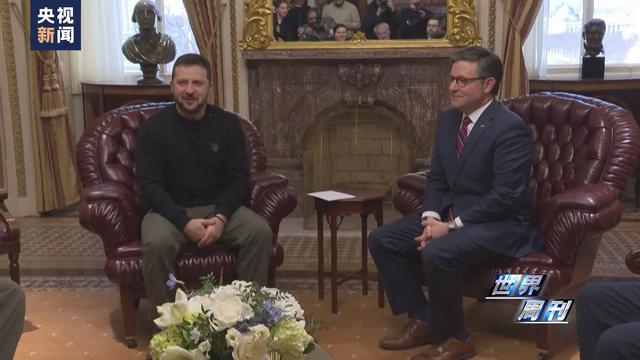
On the morning of the meeting with Biden, he had just held closed-door talks with US congressmen, trying to persuade them to release the aid funds to Ukraine. After leaving Congress, Zelenski posted on social media that the talks were "friendly and frank".
However, the media noticed that when he walked out of the Capitol, he didn’t stop to answer reporters’ questions, which seemed to be in a bad mood.
Johnson, the Republican Speaker of the US House of Representatives, echoed Zelenski’s statement.
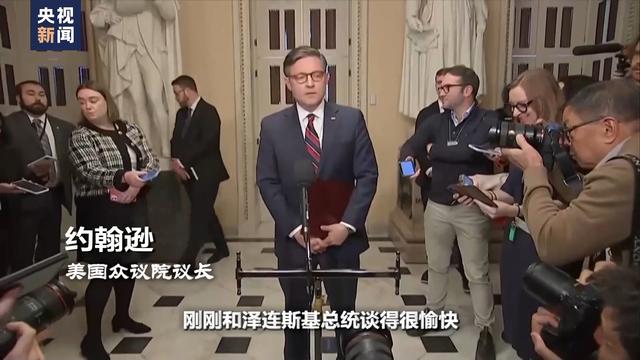
Johnson, Speaker of the US House of Representatives:I just had a pleasant talk with President Zelenski, and I reiterate that we stand with him.
But after verbal support, Johnson’s next words will not make President Zelenski feel happy, but will be even more disturbing.
Johnson, Speaker of the US House of Representatives:The Biden administration seems to be asking for billions of dollars in extra funds, without proper supervision, without a clear winning strategy, and without the answer I think the American people deserve.
In fact, in the United States, where the party struggle is increasingly fierce, Republicans have seen an "opportunity" to use the Biden administration’s urgent psychology to help Ukraine.
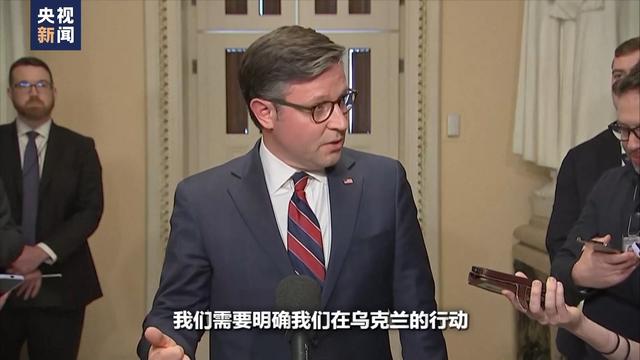
Johnson, Speaker of the US House of Representatives:Since I took over as Speaker, I have made it very clear that we need to be clear about our actions in Ukraine and how we can properly supervise the valuable taxes of American taxpayers. We need a revolutionary border policy.
This actually means that Republicans will use the $60 billion in new reinforcements to Ukraine as a bargaining chip, forcing Biden’s government to accept the border immigration policy during Trump’s period, including further building the border fence and tightening refugee qualifications.
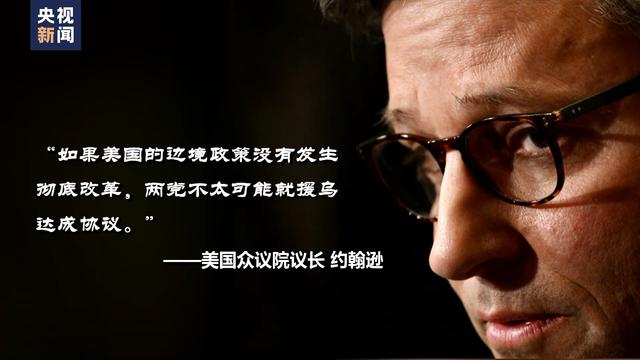
If the Biden administration accepts these conditions, it will be tantamount to "political suicide."
With the approaching of the 2024 American election, the tearing struggle between the two parties has also intensified.
On December 13th, local time, the day after Biden met with Zelenski, Republicans in the US House of Representatives voted to formally investigate the impeachment of US President Biden.
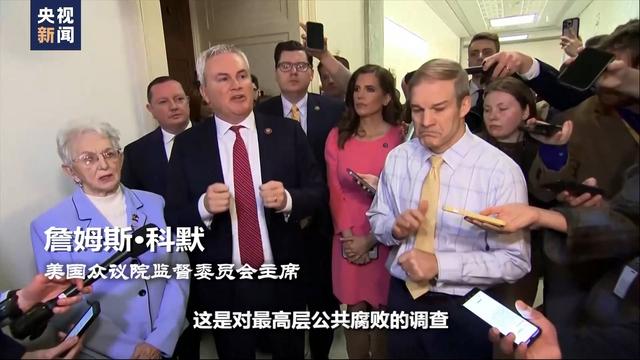
James Comer, Chairman of the US House Oversight Committee:This is a survey of public corruption at the highest level, and we have accumulated a lot of evidence related to the vast majority of Americans.
As soon as Biden met with Zelenski at the meeting, Republicans threw out the political "nuclear bomb" of impeachment, which was tantamount to hoping to completely destroy Biden’s re-election path.
And Zelenski’s trip to "ask for help" seems doomed to "no gain".
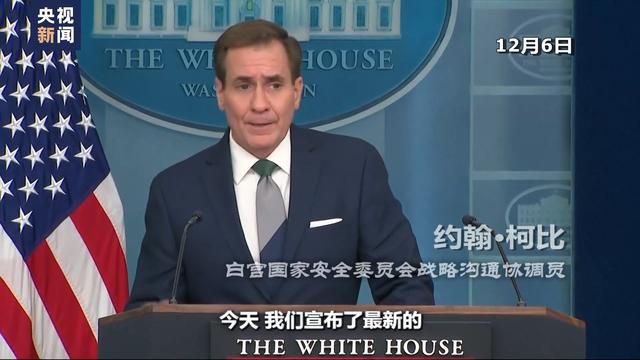
Kirby, spokesman of the US National Security Council:Today, we announced the latest security assistance plan to support Ukraine. This is the 52nd batch of weapons and equipment we sent to Ukraine to help them meet the urgent battlefield needs while continuing their counter-offensive.
On December 6th, before Zelenski’s visit to the United States, the United States announced a new batch of aid weapons, including artillery and ammunition.
On the 7th, when meeting with visiting British Foreign Secretary David Cameron, Secretary of State blinken listed the western aid to Ukraine.
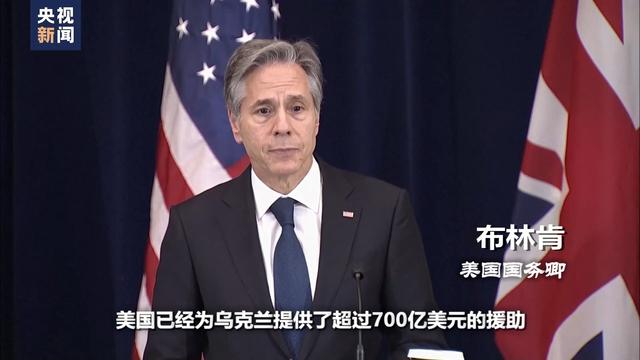
US Secretary of State blinken:The United States has provided more than $70 billion in aid to Ukraine, and our European allies have provided more than $110 billion in support.
The vast majority of these huge funds have become weapons provided to Uzbekistan, but the protracted war has consumed a large amount of American weapons stocks. In July this year, the United States even provided Ukraine with mass destruction cluster munitions that were banned by international law.
This was strongly opposed by the majority of the American people.
In October this year, a poll in Reuters showed that about 35% of Americans now disapprove of US arms assistance to Ukraine. In this regard, the Russian "Viewpoint" commented that the West is now beginning to realize that Ukraine has become an abyss.
On December 7th, US Secretary of State blinken told the truth about aiding Ukraine.
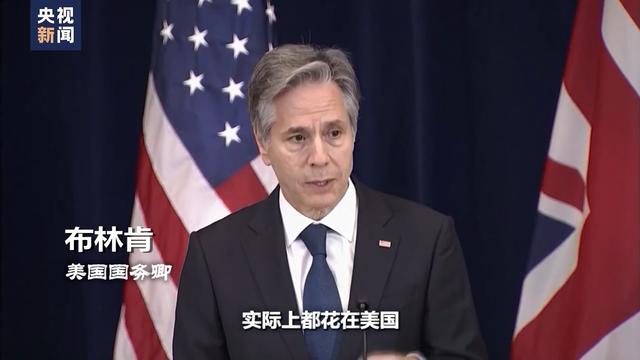
US Secretary of State blinken:90% of the security assistance we provide is actually spent in the United States, on our manufacturers and our production, creating more employment opportunities for Americans and promoting our own economic growth.
Using Ukraine to consume Russia, and American factories can also get weapons orders, which is the real logic of aiding Ukraine.
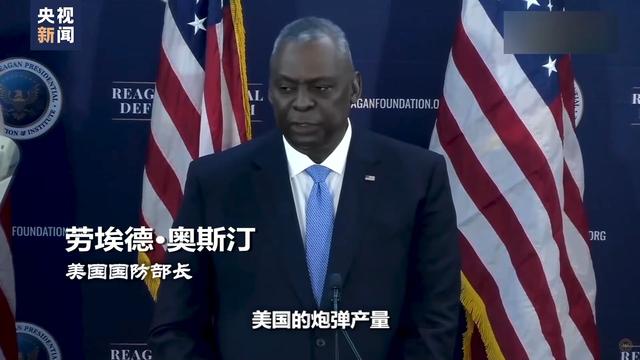
US Secretary of Defense lloyd austin:During this administration, the output of artillery shells in the United States will not only increase, but also quadruple. At the same time, we launched what the Army called the most ambitious modernization of the national defense industry in the past 40 years.
However, even if the arch fire war can kill two birds with one stone, the United States still has to calculate the "cost-effectiveness ratio".
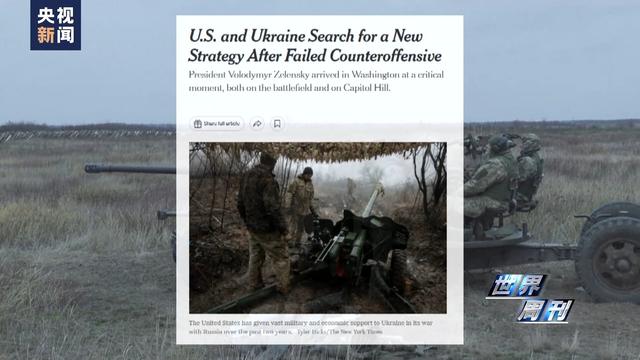
On December 12th, an article in The New York Times entitled "After the failed counterattack, the United States and Ukraine seek a new strategy" revealed that while Zelenski hopes to continue to launch ground attacks to attract the world’s attention, the Biden administration is promoting a new strategy to be implemented from the beginning of next year, so that Ukraine can turn to the defensive, and at the same time accumulate materials and mobilize troops.
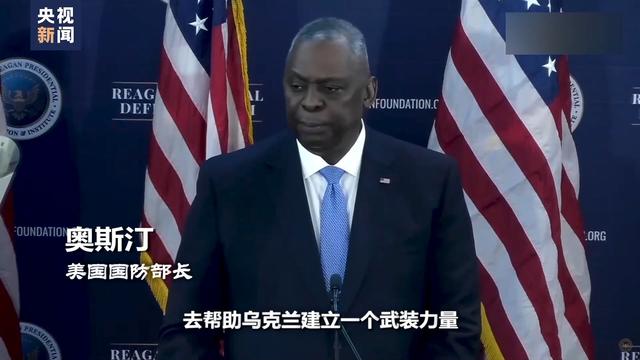
US Secretary of Defense Austin:Today we are working with our allies and partners to help Ukraine build an armed force that can resist Russia in the next few years.
The New York Times also disclosed that the United States has decided to increase its efforts to provide "face-to-face military advice" to Ukraine, and is prepared to send a Samsung general to stay in Kiev for quite a long time.
Some American officials said that if Ukraine does not change its strategy, there may be a situation in 1916 during World War I in 2024, when a large number of soldiers were killed, but the front line has hardly changed.
For Zelenski, this is not good news.
On December 13th, Zelenski made a surprise visit to the Norwegian capital.
According to The Wall Street Journal, this shows that Ukraine turned its hope to Europe after the United States was cold for help.
However, on the issue of aiding Ukraine, cracks have already appeared within Europe.
The French newspaper Le Monde reported that since Zaluzhnyi, commander-in-chief of the Ukrainian armed forces, publicly admitted that the front-line war was deadlocked, a "general sense of helplessness" has always hung over Kiev’s western allies. In Europe, aid to Ukraine has increasingly become the weight of the game for countries’ own interests.
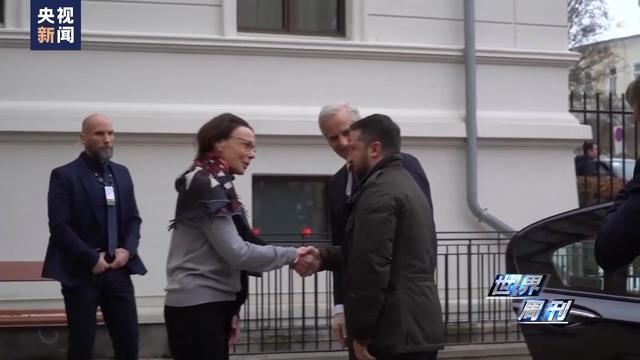
December 13th, Oslo, Norway. Zelenski received "good news" as soon as he arrived in Norway.
On this day, Norway, Sweden, Denmark, Finland and Iceland held a Nordic summit. The meeting issued a joint statement saying: "The Nordic countries will stand with Ukraine."
Compared with verbal support, real money and silver aid is naturally true and reliable.
The Norwegian Parliament has previously approved a package plan to donate 75 billion kronor to Ukraine within five years, and the first batch will donate 3 billion kronor (about 2.08 billion yuan).
However, in addition to being happy, Zelenski still values another summit in another place.
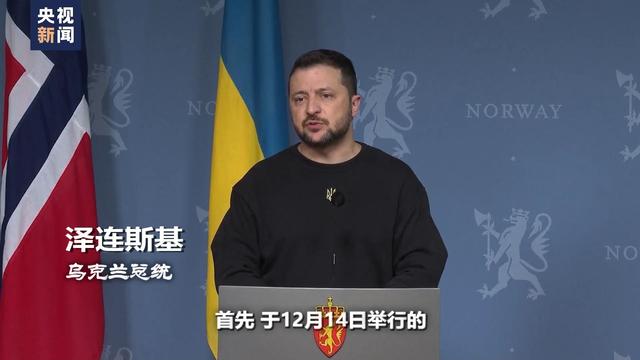
Ukrainian President Zelenski:First of all, the summit held on December 14th was not easy. We are very satisfied that 99% countries in the EU support Ukraine, and they are ready to start negotiations on Ukraine’s future accession to the EU.
On December 14th, EU leaders gathered in Brussels for the last summit of this year. At this summit, the most concerned issue is undoubtedly Ukraine’s accession to the EU and its aid to Ukraine of 50 billion euros.

Just before the opening of the summit, the European Commission announced that it would unfreeze about 10 billion euros of "cohesion fund" for Hungary.
The BBC said that this move can be interpreted as the EU’s attempt to soften Hungary’s position. Because Hungary has raised objections to the EU’s opening of Ukraine’s accession negotiations and aid to Ukraine, both of which must be approved by all EU members.
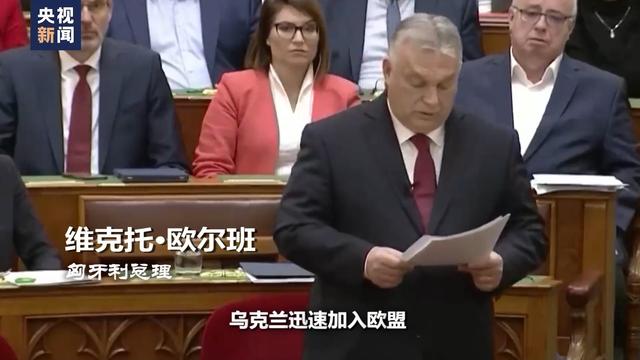
Hungarian Prime Minister Viktor Orban:Ukraine’s rapid accession to the EU is not in the interests of Hungary or the EU.
Zelenski was well aware of Orban’s attitude, and he tried to convince Orban when he attended the inauguration ceremony of the new Argentine president.
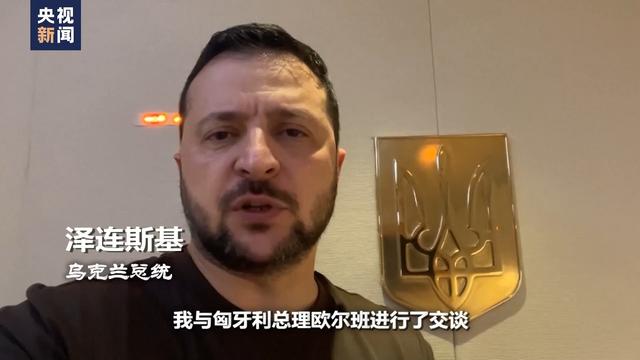
Ukrainian President Zelenski:During the inauguration ceremony, I had a talk with Hungarian Prime Minister Orban, which was very straightforward and focused on our European affairs.
However, Orban’s position has not changed. Before attending the EU summit, he told the Hungarian parliament: "In Europe, we are the spokesmen of common sense."
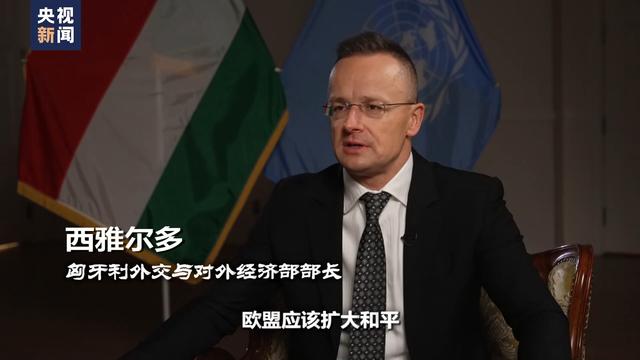
Hungarian Minister of Foreign Affairs and Foreign Economy West Jardot:The EU should expand peace and should not accommodate war, and we feel that allowing Ukraine to join now also means including war.
According to EU sources, during the voting on December 14th, Orban temporarily left the voting hall. This absentee voting was not an accident, but was agreed with Orban in a constructive way in advance by the EU.
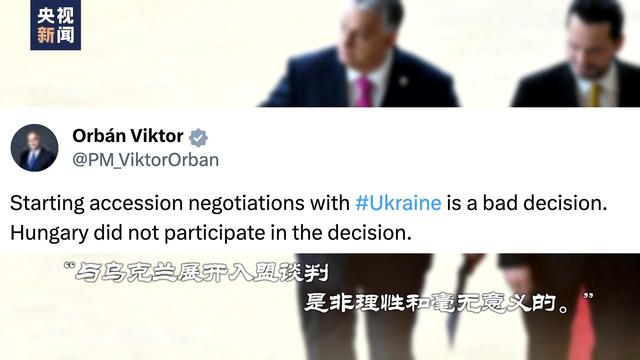
After the vote on that day, Orban said on social media that it was irrational and meaningless to start accession negotiations with Ukraine.
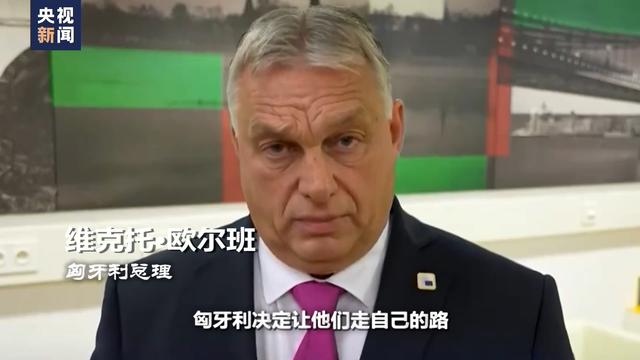
Hungarian Prime Minister Viktor Orban:Since the other 26 countries insisted on this decision, Hungary decided to let them go their own way, and Hungary was unwilling to participate in this wrong decision.
In fact, European public opinion believes that as the conflict between Russia and Ukraine continues, the "Ukrainian fatigue syndrome" is also spreading in more and more EU countries. Except Hungary, the attitudes of Poland, Slovakia, Austria and other countries are actually changing.
Slovak Prime Minister Robert Fizzo has repeatedly stated that Slovakia supports Ukraine’s territorial integrity and independence, but will not provide it with military assistance.
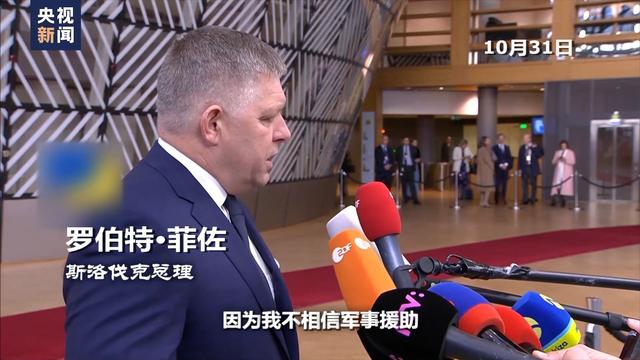
Slovak Prime Minister Robert Fizzo:Because I don’t believe that military assistance can solve the Ukrainian crisis.
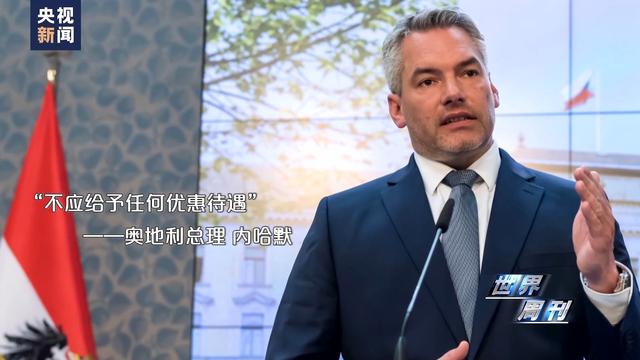
On December 11th, Austrian Prime Minister Nehmer said at a government meeting that "Ukraine should not be given any preferential treatment" on the issue of joining the EU. Behind the change of attitude are the different interests of EU countries.
On December 8, representatives of agricultural organizations and food producers from Poland, Hungary, Czech Republic and Slovakia held a meeting, calling on the EU to urgently deal with the negative impact of Ukrainian agricultural products exported to the European market.
Because Ukrainian agricultural products were blocked from being transported through the Black Sea, a large number of them entered Europe and hit the markets of Poland and other countries, causing dissatisfaction.
Pavel Lipovski runs a 500-hectare farm in central Poland. He said that the detention of Ukrainian agricultural products had a huge impact on his farm and family.
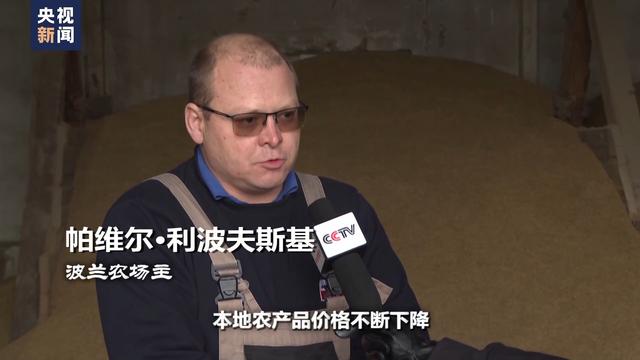
Polish farmer Pavel Lipovski:Since the conflict of exporting agricultural products in Ukraine, the prices of local agricultural products have been declining. The price of wheat has dropped by a third, and corn is nearly a third cheaper. In addition, our profits are very small. If we continue like this, even if our country has so many hectares of land, I can’t see any prospects.
At the same time, since the European Union lifted the restriction on the number of people entering Europe to help Ukraine in the war, Polish truck drivers have been accusing Ukrainians of stealing their business, and a large number of drivers blocked the border between Poland and Ukraine and launched a strike.
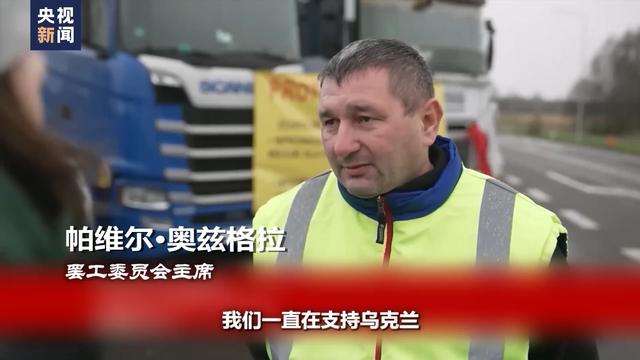
Pavel Ozgra, Chairman of the Strike Committee:We have been supporting Ukraine, but we also need to support our own families. For our company, this is a matter of survival or destruction.

Villager Yolanda in a village near Poland:I don’t support Ukrainians anymore. I’m fed up with them.
The protracted Russia-Ukraine conflict and its spillover effects have made all EU countries consider their own interests.
On December 13th, the German newspaper frankfurter allgemeine zeitung quoted the latest report of the German Economic Research Institute as saying that if Ukraine joins the EU, up to 17% of the EU common budget will flow into Ukraine, of which only the agricultural subsidies to Ukraine will be as high as 130 billion to 190 billion euros in the next few years.

Zimbabwe MP Supa Mandiwanzla:Recently, Europe has also realized that they have not benefited from the conflict. Compared with before the conflict, the economy has fallen into a quagmire. They tried to sanction Russia, but to some extent, they strengthened Russia and weakened Europe and EU countries.
In fact, throughout Europe, the call for a peaceful solution to the Ukrainian crisis has become louder and louder.
On September 21st this year, on the International Day of Peace, several cities in Germany held peaceful rallies, calling for a peaceful settlement of the Russian-Ukrainian conflict.

German people Wolfgang:Military means is not the solution to the Russian-Ukrainian conflict, and the Russian-Ukrainian conflict can only be resolved through diplomatic means.

German people Mishi:Weapons delivery cannot solve conflicts, only peaceful negotiations can.
Even those European politicians who strongly support aid to Ukraine in public may not really think so.
According to the British Guardian, two Russian pranks phoned Italian Prime Minister Silvio meloni in September this year, posing as African leaders. On the phone, meloni expressed his true thoughts on the conflict between Russia and Ukraine.

Italian Prime Minister meloni:I see that everyone is tired, and I must tell the truth, from all sides.
Under the leadership of the United States, the West continues to send weapons and equipment to Ukraine, and its real purpose is for its own interests.
For Norway, which actively assisted Ukraine, Russian TV today quoted NRK, a Norwegian public broadcaster, as saying that the country earned $31 billion from the Russian-Ukrainian conflict, which led to soaring energy prices. Last year, Norway’s oil and gas revenue hit a record high.

Brazilian geopolitical scholar Pepe Escobar:First of all, it needs to be clear that the Russian-Ukrainian conflict is a war in which the United States uses NATO against Russia. Secondly, this war is not good for Europe, because the initiators of the war began to plan at least eight years ago, and their purpose is to deindustrialize Europe, cut off the economic ties between Germany and Russia, and make Europe an ornament of American hegemony.
Today, compared with last year’s support for Ukraine, there is no prospect of victory in the war, which has caused the EU as a whole to fall into "aid fatigue".
In particular, the European Union, which is in the midst of an economic crisis, is considering cutting its own budget, so it is difficult to bear any new burden.
On December 15th, the EU Summit voted on the much-watched 50 billion euro aid plan to Ukraine. Because Hungary voted against it, it failed to reach an agreement on the plan.

Australia’s "Dialogue" news network bluntly said that in the past week, the aid plans of the United States and Europe have both been frustrated, which makes people feel that the fate of Ukraine is more like being decided by Washington and Brussels than by the battlefield.
Nowadays, for western politicians, Ukraine seems to have become a "hot potato" and a "victim" that can be abandoned at any time.
In the coming year of 2024, both the United States and Russia will hold general elections, which makes the prospect of the Russian-Ukrainian conflict even more confusing.
According to Singapore’s Lianhe Zaobao, whether the West can continue to vigorously aid Ukraine, whether Ukraine can continue to endure casualties and inconvenience in life, and who can be elected president of the United States in 2024, these three factors may influence the outcome of this war.
Source: CCTV news client
Reporting/feedback
关于作者